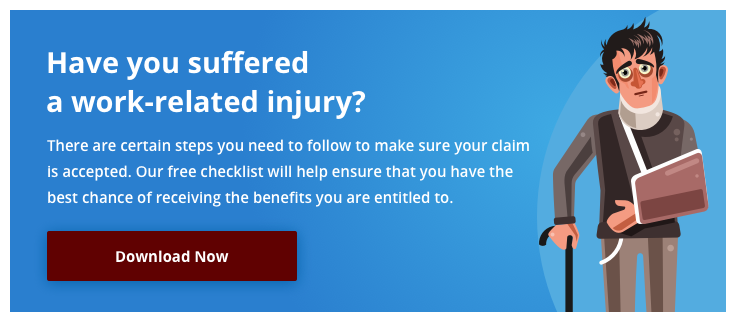Employers in California have certain rules that they must follow when it comes to workers’ compensation claims. If they fail to follow these rules, there may be serious repercussions. It is important to know what your employer is required to do when it comes to workers’ compensation claims, because their actions or inaction may affect your case if you are injured at work.
If you have questions regarding a work related injury, the California workers’ compensation attorneys at Kneisler & Schondel are here to help you. Our attorneys have many years of experience handling many types of workers’ compensation cases. We know the rules and laws that employers must follow when it comes to workers’ compensation, and our attorneys know how to fight for you if your employer fails to follow the law.
Workers’ Compensation Insurance
In California, your employer is required to have workers’ compensation insurance regardless of how small the business may be. Even if the business has only one employee, they still must have workers’ compensation insurance.
If an employee suffers a work-related injury, their employer must provide workers’ compensation benefits. These benefits include things like medical care, temporary and permanent disability benefits and supplemental job displacement benefits. Out-of-state employers are also required to maintain workers’ compensation insurance if they have employees that are regularly working in California or if they have entered into a contract of employment in California.
Requirements for Employers Regarding Workers’ Compensation Insurance
If your employer fails to maintain workers’ compensation insurance, it is a criminal offense. The workers’ compensation insurance must cover all employees, even part-time employees. As an employee, you should also be aware that it is illegal to fire an employee or punish them in any way in retaliation for filing a workers’ compensation claim. You should also know that your employer is not allowed to make you pay for the policy or pay in any way for their workers’ compensation insurance policy.
Other Requirements for Employers
Employers in the state of California must have a program for the prevention of injury and illness. The program is required to include training for employees and workplace inspections, as well as procedures for quickly correcting unsafe work conditions. Newly hired employees must be given information regarding their rights and responsibilities about injuries in the workplace.
In accordance with California Labor Code 3550, employers must post a notice that states the name of their workers’ compensation insurance carrier or a notice stating that they are self-insured for workers’ compensation. This notice must be located in an area frequented by employees and must be located where it can be easily read by employees during work hours. It is a misdemeanor and punishable by law if your employer does not have this notice.
Requirements for an Employer Once They Learn an Employee Has Suffered a Work-related Injury
There are also certain rules your employer must follow once you report a work-related injury. Within one working day of your report, your employer must provide you a workers’ compensation claim form. The claim form allows you to explain the details of your work injury or illness. Once your employer receives your completed claim form they must forward the form to their workers’ compensation insurance company.
The insurance company then must provide you with access to their Medical Provider Network (MPN), which is a list of their pre-authorized medical providers. The insurance company must assist you with arranging an initial medical evaluation with an MPN physician. And you are entitled to up to $10,000 worth of medical treatment even if your claim is in delay and being evaluated for acceptance or denial.
Requirements for Returning to Work
In some cases, an injured worker will be returned to work by her treating physician with certain restrictions. These restrictions may include things like limiting how much weight can be lifted, or a restriction on performing certain kinds of activities. If your doctor authorizes you to return to work with temporary restrictions, your employer must provide you with work that is within your restrictions. If they cannot provide you with work that meets your work restrictions, then they cannot require you to work. They will also have to pay you temporary disability benefits for the period of time that you are unable to work full duty, as prescribed by your treating physician.
If you have sustained a work-related injury and have questions or concerns regarding the progress of your claim, it is a good idea to speak with a knowledgeable workers’ compensation attorney. The attorneys at Kneisler & Schondel have the knowledge and experience necessary to help you fight for the compensation you deserve. Contact us at 707-542-5132 or fill out our online contact form.

